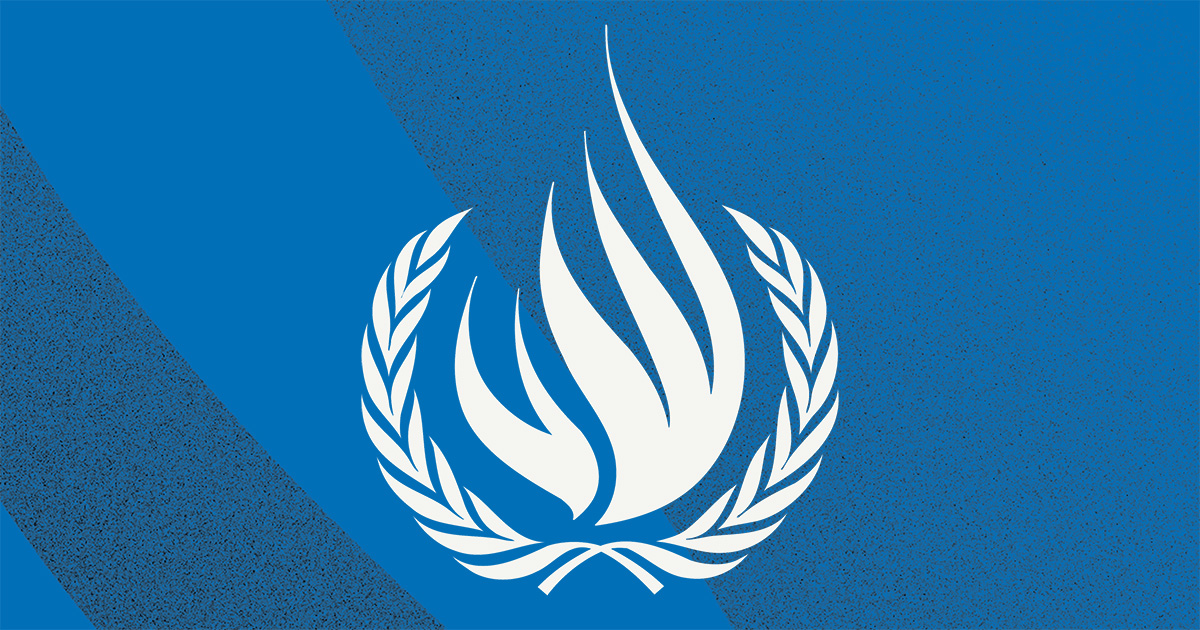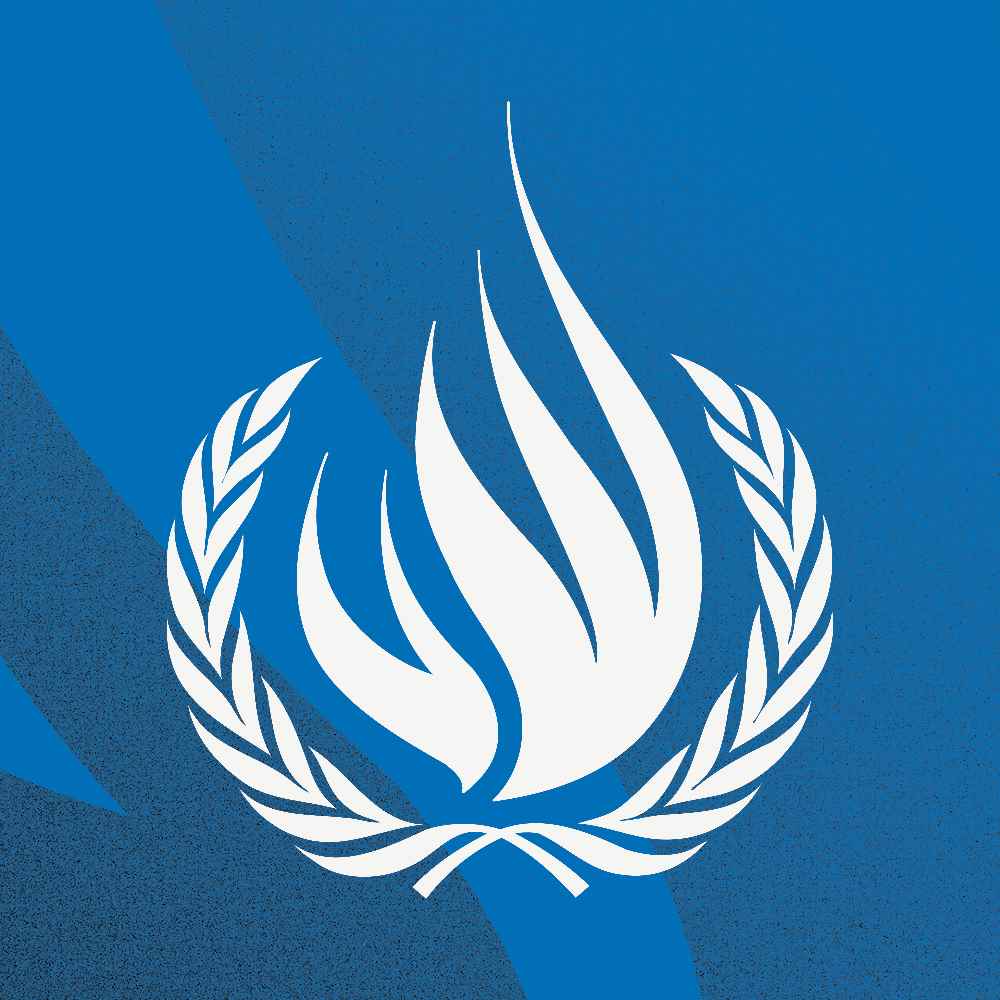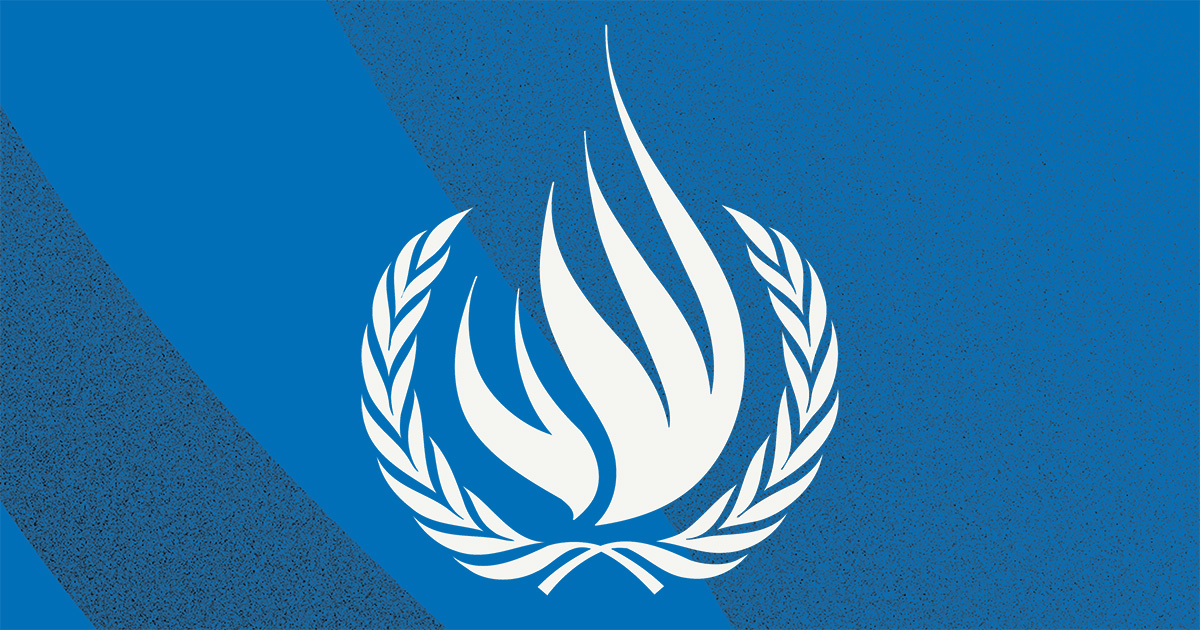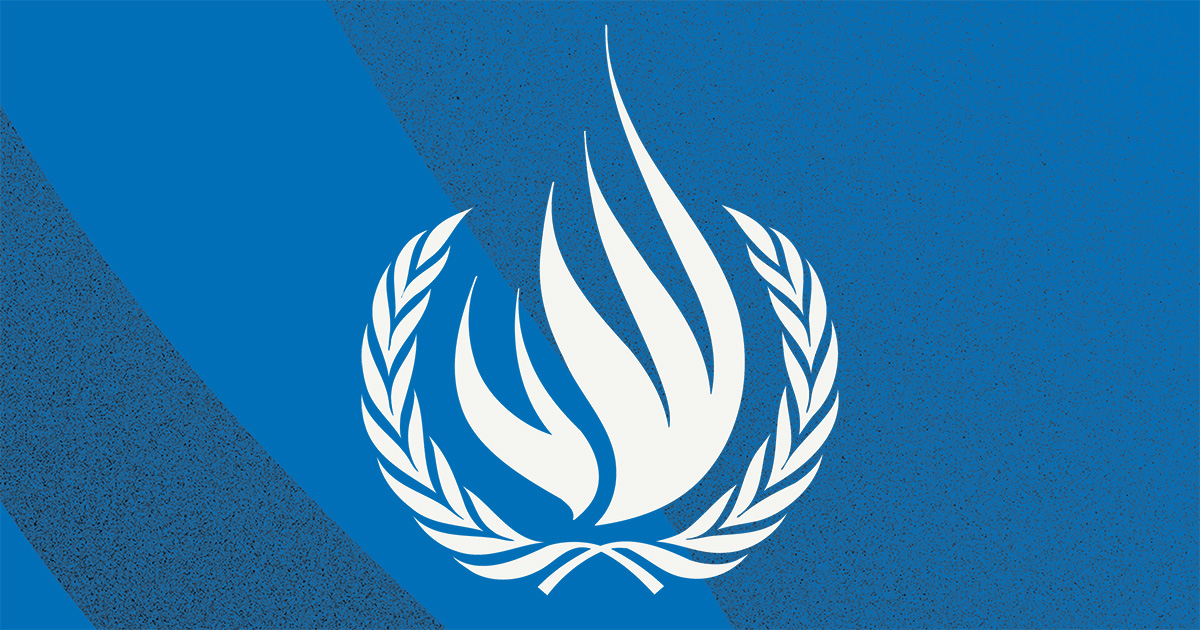
GENEVA (20 May 2022) – A group of UN human rights experts* has urged States to ensure that ongoing multilateral negotiations on a new international instrument on pandemic preparedness and recovery is grounded in human rights. As the 75th Session of the World Health Assembly prepares to deliberate on these initiatives, the experts issued the following joint statement:
“Over the past years, the COVID-19 pandemic has resulted in, at least six million deaths officially registered globally, deepened economic and social inequalities, and exposed structural discrimination within societies and the pandemic exacerbated violations of fundamental human rights and freedoms. As COVID-19 has made clear, resilience to pandemics is inextricably linked with the economic, social, and political conditions in which people live, is shaped by inequalities within and between countries, and is dependent upon the full realization of all human rights notably the rights to health, life, freedom of expression, assembly and movement, among others.
As independent human rights experts, we have consistently called on States to adopt rights-based approaches to the ongoing pandemic response and recovery, and to adopt bolder measures and commitments to international solidarity. The world is grappling with the failures in pandemic preparedness regarding pathogen surveillance, data collection, including disaggregated and gender-sensitive data, and transparency, public health communications and equity in prevention, access to vaccines, diagnostics, and therapeutics, as well as adequate resources to cater for these concerns. To prevent and mitigate the toll of future pandemics, including recurrence of erosion of fundamental freedoms and related human rights violations, we are closely following recent global health law reform negotiations, including a new international legal instrument on pandemic preparedness and response.
As the 75th Session of the World Health Assembly prepares to deliberate on these multilateral initiatives, we urge States to ensure that negotiations draw from article 12 of the International Covenant on Economic, Social and Cultural Rights (ICESCR) and the International Covenant on Civil and Political Rights (ICCPR), in particular its article 4 and take into account longstanding international human rights obligations that are essential to public health crisis preparedness, response and recovery, including social security - which is essential for the enjoyment of the right to health, as demonstrated by the pandemic - and fiscal considerations. They should also consider that emergency measures are justified, transparent and adopted in line with international human rights standards.
In particular, we urge States to ensure that this new instrument is grounded in human rights and centres, in particular women, girls and other vulnerable groups and marginalized populations right to the highest attainable standard of physical and mental health without discrimination and that it guarantees the respect and enjoyment of interrelated rights, including freedom of peaceful assembly. We also encourage States to take into account the role of the private sector in providing access to essential services and medicines during such crises, and in ensuring business respect for human rights.
Aligned with human rights obligations, we commend the Intergovernmental Negotiating Body (INB) to draft and negotiate a WHO convention, agreement or other international instrument on pandemic prevention, preparedness, and response for concluding their first round of virtual public hearings with interested stakeholders last April. However, we are concerned since it remains unclear how the results of the public hearings and written submissions will be used, and more generally whether ongoing multilateral deliberations will be open to a broad spectrum of affected communities and civil society organizations. The full and meaningful participation of all concerned communities and civil society is essential to ensure a strong, transparent and legitimate process.
The World Health Assembly presents WHO Member States with an historic opportunity to reflect upon crucial lessons from the pandemic and build tangible movement towards realizing the pre-eminent purpose of world’s leading UN agency on global health – to realize the highest attainable standard of health for all with no discrimination.”
ENDS
*The experts: Ms. Tlaleng Mofokeng, Special Rapporteur on the right of everyone to the enjoyment of the highest attainable standard of physical and mental health, Mr.Saad Alfarargi, Special Rapporteur on the right to development, Mr. Obiora C. Okafor, Independent Expert on human rights and international solidarity, Mr. Clément N. Voule, Special Rapporteur on the right to peaceful assembly and association, Ms. Attiya Waris, Independent Expert on the effects of foreign debt and other related international financial obligations of States on the full enjoyment of all human rights, particularly economic, social and cultural rights, Mr. Livingstone Sewanyana, Independent Expert on the promotion of a democratic and equitable international order, Mr. Olivier De Schutter, Special Rapporteur on extreme poverty, and Ms. Elżbieta Karska (Chair-Rapporteur), Ms. Fernanda Hopenhaym (Vice Chairperson), Ms. Anita Ramasastry and Ms. Pichamon Yeophantong, members of the Working Group on Business and Human Rights.
Special Rapporteurs are part of what is known as the Special Proceduresof the Human Rights Council. Special Procedures, the largest body of independent experts in the UN Human Rights system, is the general name of the Council"s independent fact-finding and monitoring mechanisms that address either specific country situations or thematic issues in all parts of the world. Special Procedures" experts work on a voluntary basis; they are not UN staff and do not receive a salary for their work. They are independent from any government or organization and serve in their individual capacity.
For more information and media requests please contact Karin Hechenleitner Schacht (+41 22 917 8458 / karin.hechenleitner@un.org).
For media inquiries related to other UN independent experts, please contact Jeremy Laurence (+ 41 79 444 7578 / jeremy.laurence@un.org).
Follow news related to the UN"s independent human rights experts on Twitter: @UN_SPExperts.
Concerned about the world we live in?
Then STAND UP for someone"s rights today.
#Standup4humanrights
and visit the web page at http://www.standup4humanrights.org









